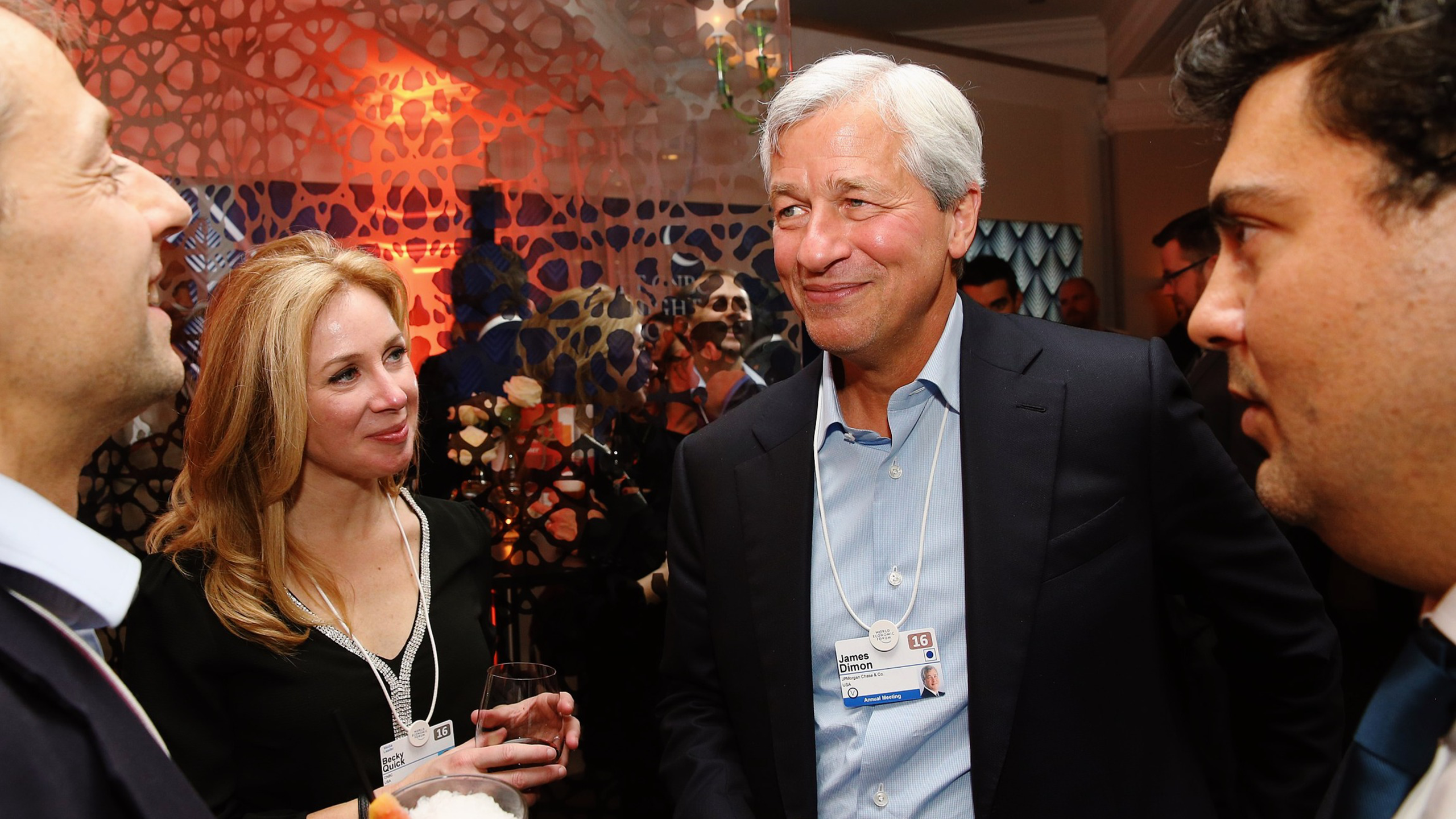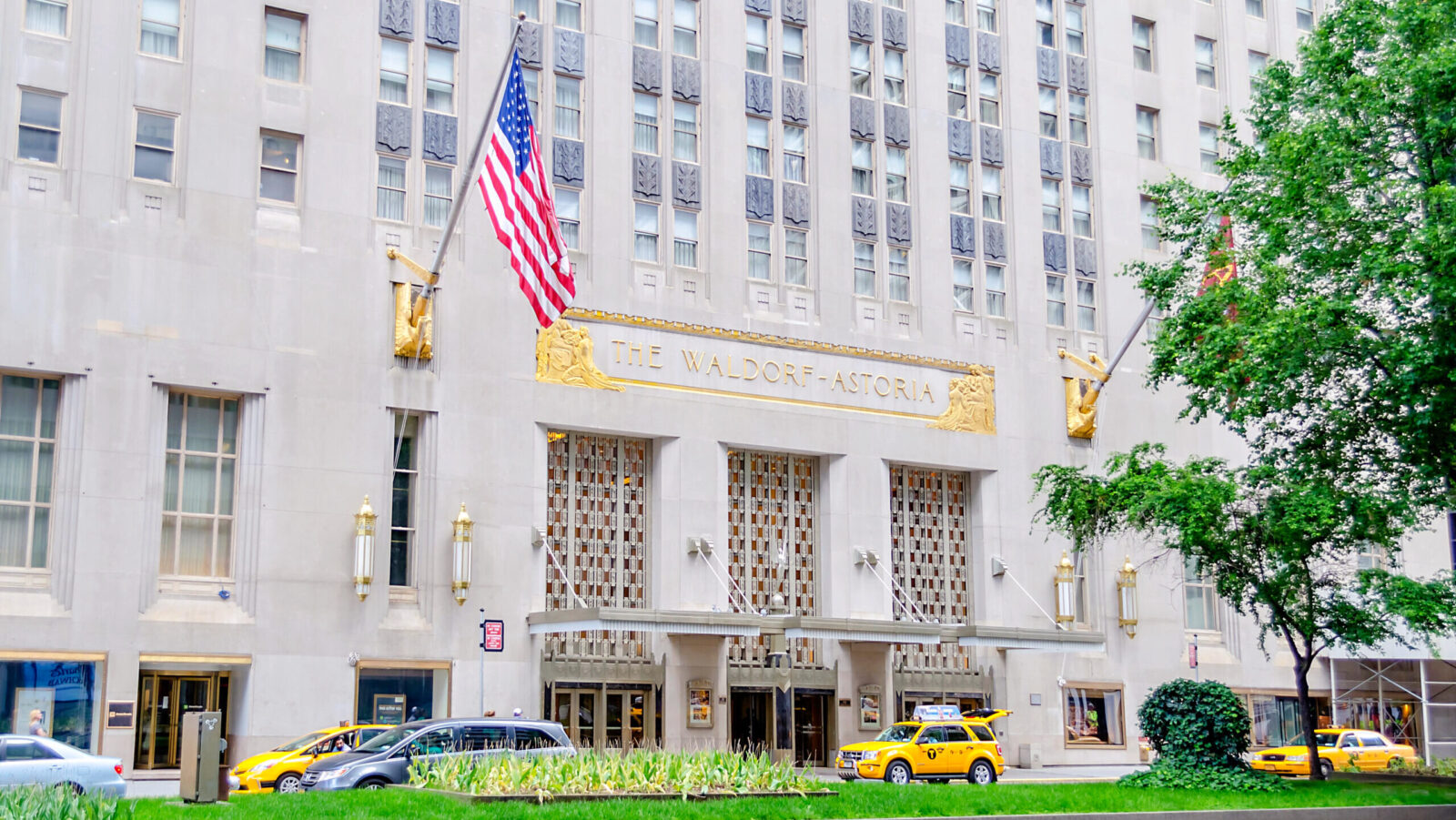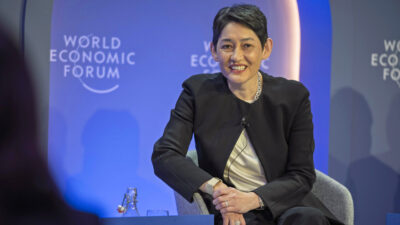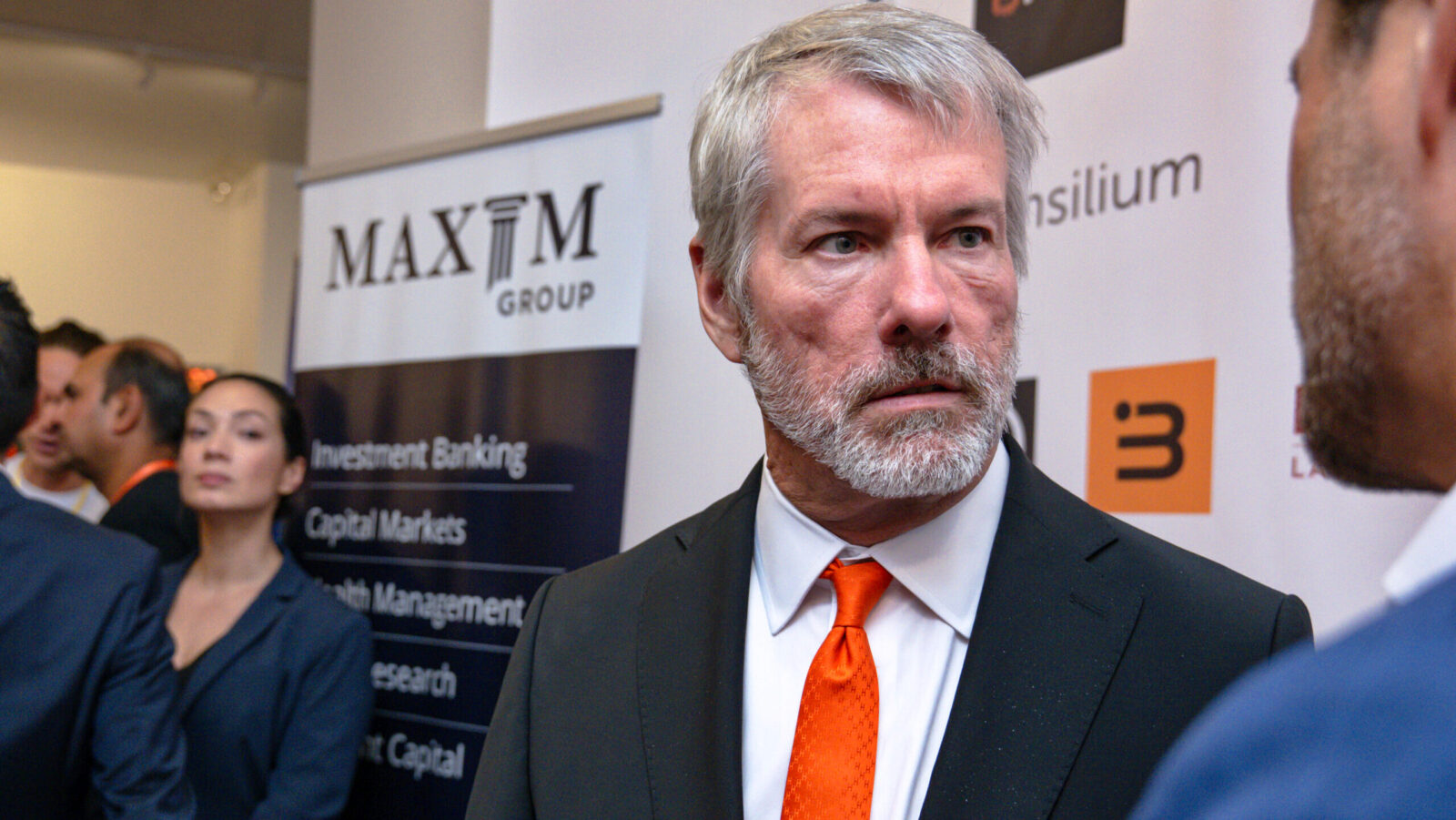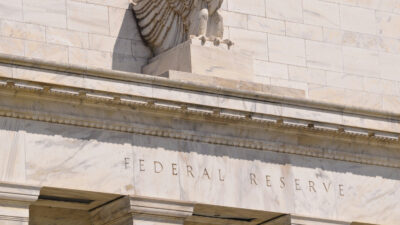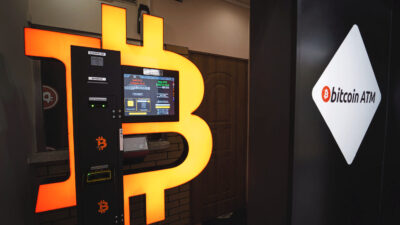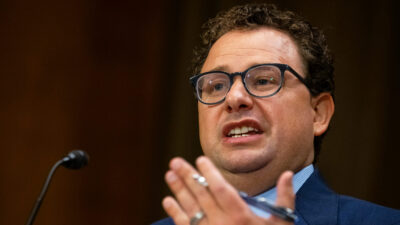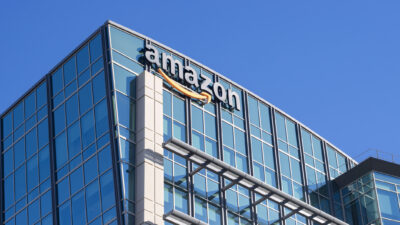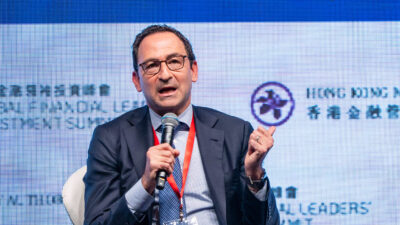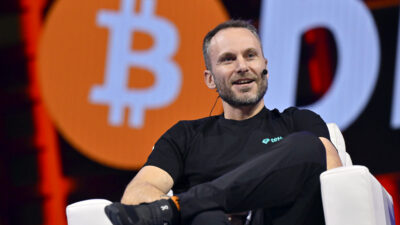Time to Duck and Cover? Billionaires Brace for Tariff Fallout
Jamie Dimon warned inflation is likely going up and Larry Fink said the economy might already be in recession.
Sign up for smart news, insights, and analysis on the biggest financial stories of the day.
“Don’t be a PANICAN!” That was President Donald Trump’s call to Americans on Monday, in the face of markets, well, panicking after last week’s global tariffs announcement.
In the hours following that plea, panicans added some very prestigious members to their ranks: The head of America’s largest bank warned inflation is likely going up and the head of the world’s largest asset manager said the economy might already be in recession.
On Canary Watch
JPMorgan CEO Jamie Dimon had been pretty quiet on the macro front since he told people in January to “get over” tariffs, which he said would be good for national security and only a “little inflationary.” In his annual shareholder letter, released Monday, the sage-king of Wall Street was singing a different tune: The potential of a global trade war is threatening the economy with “considerable turbulence,” he wrote, adding that last week’s tariffs “will likely increase inflation and are causing many to consider a greater probability of a recession.”
Dimon’s assessment — which many on Wall Street viewed as a full sounding of the alarm — was practically muted next to BlackRock CEO Larry Fink’s. “Most CEOs I talk to would say we are probably in a recession right now,” he told the Economic Club of New York. “One CEO specifically said the airline industry is a proverbial bird in a coal mine — canary in the coal mine — and I was told that the canary is sick already.”
So why the sudden outcry? There are a couple of indicators:
- A survey of executives taken at last month’s Yale CEO Caucus — which Dimon attended — found that 44% said they would wait until the market fell 20% before publicly criticizing the administration’s policies. Early Monday morning, the S&P 500 briefly swung 20% below its record closing high, an apparent psychological breaking point.
- Then there are the unique challenges the Federal Reserve would face managing inflation in a trade war-driven recession. Typically inflation is lower in a weak economy, giving the central bank room to decrease interest rates but, since tariffs are inflationary, Fink warned “we could have elevated inflation that’s going to bring rates up much higher than they are today,” adding he now sees “zero chance” of the Fed making the currently forecasted four interest rate cuts this year.
The critics are inside Trump’s political tent, too. Dimon’s and Fink’s remarks came a day after hedge fund billionaire Bill Ackman — a vocal Trump supporter — warned that prolonged tariffs will risk a “self-induced, economic nuclear winter.”
The Off-ramp: Just how happy would markets be if there was a tariff pause? A false story that spread on social media Monday morning, which claimed Trump was considering a “90-day pause in tariffs” and was erroneously picked up by CNBC and Reuters, caused an 8.5%, $3.6 trillion S&P 500 rally in little over half an hour (after the error was noticed, markets reversed and the index finished virtually flat). Trump said he’s willing to make “fair deals” with other countries and that the administration will “immediately” strike up talks with some 50 nations that have requested meetings. Earlier this year, most CEOs were pinning their hopes on tax cuts and deregulation; now, they’re rooting for the diplomats.
